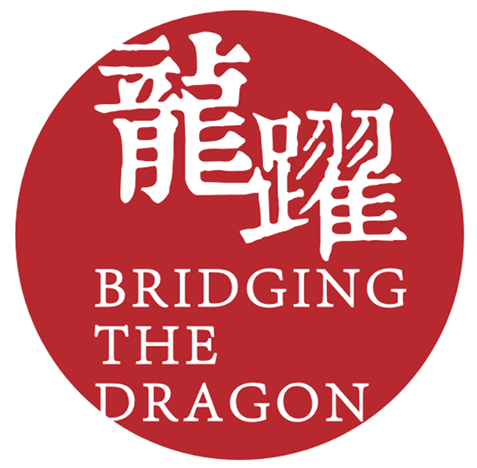SINO-INTERNATIONAL SEMINAR
Marché du Film
20 May 2022
On May 20th, the Marché du film and the Sino-European producers association Bridging the Dragon co-hosted the Sino-International Seminar titled “How to work with China: Challenges, Lessons Learned and Promising Experiences”.
The event comes at a time of general world uncertainty and a long closure of China which has created isolation and scepticism regarding the possible collaboration with this big market. Even the release of several Hollywood films has been cancelled, including anticipated franchises such as Black Widow, The Eternals and Spider-Man: No Way Home. In such a climate, the organizers aimed at offering to the participants some successful case studies which could still show the feasibility and value of this interaction.
Cristiano Bortone, CEO of Orisa Produzioni, has shared his experience in realizing the soon to be released Sino-Italian-German The Italian Recipe directed by Chinese filmmaker Zuxin Hou. The film was hatched out from the Bridging the Dragon yearly lab, and it can be regarded as a perfect model for a Sino-European co-production. It managed to combine the traditional financing sources from Europe (a mix of tax incentives, regional funds, TV presales and product placement) with the equity contribution of a comedy giant like Fun Age pictures, a company behind some of the highest grossing comedy blockbusters of the last years. Since the beginning, the producers identified a clear target audience and the project was tailored to suit Chinese taste instead of facing the challenge of pleasing both sides. From here the attentive split of artistic figures such as the Chinese writer and director, editor and even make-up artist who could better handle Asian skin; but on the other hand top Italian DOP, composer, production and costume designer. The story is a romantic comedy, and it did not have to face major requests from the censors. But it sets a new production structure where the European partner contributes with its resources in order to acquire a share of the Chinese revenues. Bortone also explained in detail the current marketing campaign which in China is nowadays mostly based on Tik Tok, socials and community-based online activities.
While Europeans are trying to reach out to China, Chinese productions long for recognition in the foreign market. Cedric Berhel, managing director of UK based Trinity Cine Asia, a company specializing in the distribution of high-end Chinese films in Europe, tried to sketch a portrait of the situation. When it comes to the box office performance of Chinese films in the European market, the numbers are still small and even titles which made hundreds of millions of euros in their homeland could not achieve results for more than a few hundreds of thousands in EU. Interestingly, the preference of genres varies from region to region, with arthouse and animation being more popular in Germany and France, fantasy and action in Italy, commercial blockbusters in the UK. For these films most of the audience is Chinese or Chinese speaking and only art house still attracts a more local public. But a game changer could be represented by the streamers. Recent Asian successes directly available at home, have started to make viewers more familiar with Asian protagonists, lifestyle, and cultural elements. It is a process of merging which could be faster that we think.
Natacha Devillers, founder of Shanghai-based China Blue Films, has recently finished the shooting of the Sino-French docu-fiction Pekingman: The Latest Secret of Humanity, co-produced with Chinese broadcaster CCTV. With 4 months of hard preparation and 6 weeks of shooting across locations all over China, she and her team went through an incredibly difficult journey, let alone that all this had to face the restrictions due to the pandemic. However, the completion of the project shows how the collaboration between the two sides could contribute to an outstanding artistic result. The French director Jacques Malaterre is an expert in this kind of realistic reconstructions and, because of the non-availability of some of the expected French key crew, he in the end had to coach local professional on how to reenact the life and features of ancient hominid: from the design of face masks to the creation of furs and the whole movement of the protagonists. The material will give life to a feature film which will be exploited both theatrically and eventually on TV.
Danxia You, manager of International Acquisition and Sales at leading Chinese company Beijing HY Media, explored the other aspect of distribution which is the performance of imported films in mainland China. In the past years the Middle Kingdom accounted for an incredibly high percentage of the global sales of European movies. In the year 10’s sales companies managed to sell entire libraries to satisfy the request of content from all kinds of Chinese buyers. But recently this stream of revenues has dried up. With a total box office that shrunk tremendously, the performance of foreign movies (including US ones) has suffered. In 2020 the number of films that got released theatrically plummeted to half of what it was in 2019. In such a landscape, only titles of high quality and deep emotions and coming with a very positive buzz, will ignite the curiosity of Chinese audience. But Miss You was also optimistic about the future. Once the Covid will be finally defeated, she expects the demand to rise again.
In conclusion, although at the moment the attention of many European professionals is focusing more and more on local production, often with a short term realization schedules, the action to China still remains strategic, and now more than ever it is important to be ready to interact with this reality once the world exchange will be properly re-established.
With the support of Creative Europe - MEDIA Programme of the European Union


